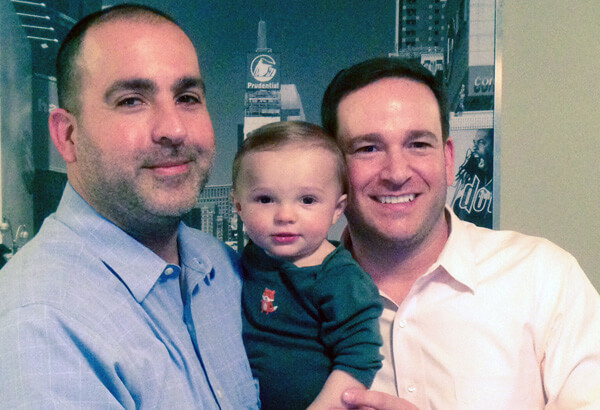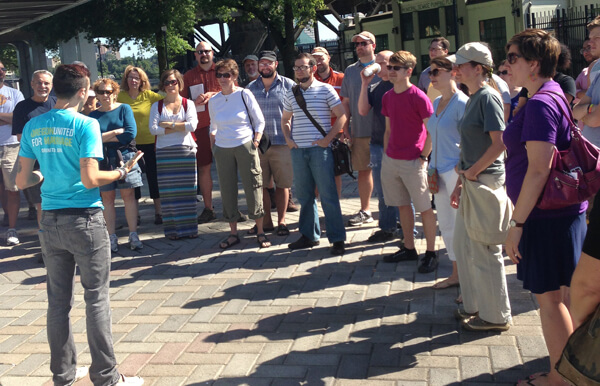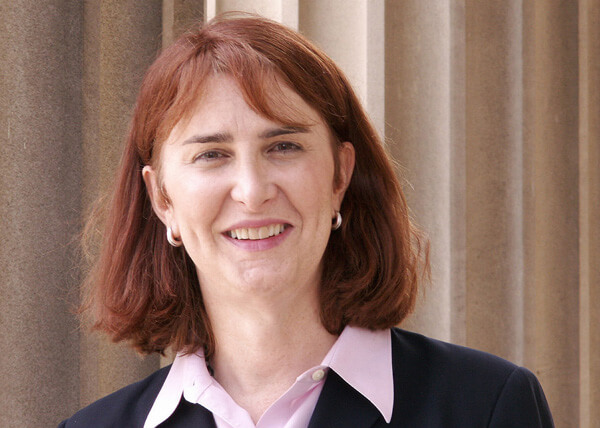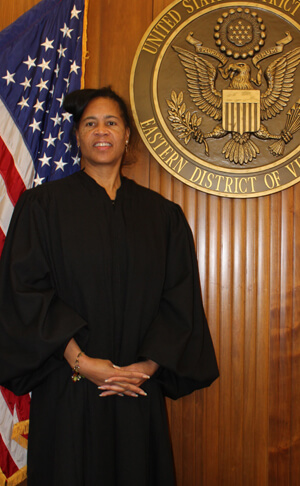April DeBoer, left, Jayne Rowse, and their children. | DEBOER ROWSE ADOPTION LEGAL FUND
BY ARTHUR S. LEONARD | A trial that will decide the constitutionality of Michigan’s 2004 voter amendment barring marriage by same-sex couples will begin in federal court on February 25 in the wake of a US district court judge’s decision in an adoption case. Judge Bernard Friedman, on October 16, heard oral arguments from a lesbian couple, April DeBoer and Jayne Rowse, who want to jointly adopt each other’s children and then announced he was denying each side’s motion for summary judgment in favor of the case going to trial.
The marriage amendment is at issue because Michigan’s adoption statute only allows couples who are married to adopt jointly.
Lesbian joint adoption case puts 2004 voter amendment to the test in federal court
In a brief opinion released after the hearing, Friedman explained there was a factual dispute to be resolved prior to his determination on the amendment’s constitutionality. The state of Michigan is making the argument that “providing children with ‘biologically connected’ role models of both genders that are necessary to foster healthy psychological development” justifies its denial of marriage rights to gay and lesbian couples. The plaintiffs, in contrast, submitted an affidavit by Dr. Jeanne Howard, co-director of the Center for Adoption at Illinois State University — which was quoted extensively by Friedman — that reviewed studies showing that children raised by same-sex couples “show patterns of adjustment similar to those of heterosexual adoptive parents and their children.” Other studies, Howard noted, have shown “no differences for children in psychological adjustment, gender identification” between children raised by same-sex couples and those by different-sex couples.
“After reviewing the record, including Dr. Howard’s affidavit, the Court concludes that a genuine issue of material fact exists with respect to defendants’ gender role-modeling justification for” the marriage amendment, the judge wrote.
The state had offered three other justifications, but Friedman noted that all of them “have been rejected by other courts in recent years,” most significantly in the Supreme Court’s June decision that struck down the ban on federal recognition of legal same-sex marriages. This case, then, will be a battle of expert witnesses about the psychological development of children raised by same-sex couples.
There are no reputable studies showing that children are disadvantaged psychologically from being raised by same-sex couples, apart from the notorious Regnerus study, the methodology and interpretation of which have been severely challenged. If the state calls Professor Mark Regnerus as an expert witness, his cross-examination by plaintiffs’ counsel will provide a first opportunity to question him under oath about the sharply disputed circumstances under which the study was produced and the disputed conclusions about what it purports to show.
The scheduled trial might sound like a replay of an old show, since the 2010 district court trial in the successful challenge to California’s Proposition 8 was devoted almost exclusively to this issue — as was the first-ever marriage equality trial in the US, held in Hawaii in October 1996. In both of those cases, testimony by the state’s witnesses ended up making the case for the plaintiffs, as they conceded under cross-examination that children have not been shown to be disadvantaged from being raised by same-sex parents and that denying their parents the right to marry actually harmed the children materially and psychologically. The trial judges in California and Hawaii produced lengthy opinions with detailed findings of fact, rejecting the state’s argument that concern for the psychological welfare of children justified denying same-sex couples the right to marry.
Friedman announced that he would not subject the marriage amendment to the most stringent standards of judicial review, applied to classifications considered “suspect” or “quasi-suspect” by the courts, such as race or gender, since the Sixth Circuit Court of Appeals, whose precedents bind the Michigan district court, has not deemed sexual orientation to be such as classification. Though he will instead apply a “rational basis” approach, which typically gives the state broad leeway in justifying its laws, he took note of recent rulings on DOMA, suggesting that the rational basis approach in this case would not be applied in the most highly deferential manner possible, given the history of discrimination suffered by gay people at the hands of the state government. Michigan may not be held to the strictest standards in justifying it ban on gay marriage, but neither is it likely to be allowed to come up with just any old justification.
DeBoer and Rowse’s motion for summary judgment had the support of an amicus brief filed by Equality Michigan and a number of leading national LGBT advocacy and legal groups.



































